Franz Liszt (1811 - 1886) was THE keyboardist of his day. He was the Paganini of the piano. His compositions, therefore, require incredible skill and dexterity to perform. Thankfully, Georges Cziffra is up to the task.
Presented here are 10 of Liszt's 19 Hungarian Rhapsodies for solo piano. These performances were recorded in 1972 so the sounds quality is very clear and clean.
Included are:
No. 2 in C sharp
No. 6 in D flat
No. 8 in F sharp
No. 9 in E flat
No. 10 in E major
No. 11 in A minor
No. 12 in C sharp
No. 13 in A minor
No. 14 in F minor
No. 15 in A minor
brilliant virtuosity
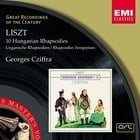 Posted : 17 years, 7 months ago on 19 November 2007 05:00
(A review of Liszt: 10 Hungarian Rhapsodies)
Posted : 17 years, 7 months ago on 19 November 2007 05:00
(A review of Liszt: 10 Hungarian Rhapsodies) 0 comments, Reply to this entry
0 comments, Reply to this entry
Beethoven the bastard
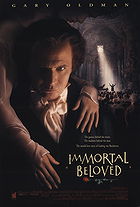 Posted : 17 years, 7 months ago on 19 November 2007 04:02
(A review of Immortal Beloved)
Posted : 17 years, 7 months ago on 19 November 2007 04:02
(A review of Immortal Beloved)This biopic about Ludwig van Beethoven presents the composer as an insufferable asshole, paranoid and vindictive to the extreme. The film would ask us to forgive the man due to his immense talent and his having had a rough life (an abusive childhood and, of course, deafness during early adulthood), but I was left cold.
The film begins with Beethoven's death amid a dark and stormy night, with the opening notes of his Fifth Symphony (perhaps the most recognizable 4 notes in all of music) signalling his demise. Most of the rest of the film is told in flashback, with the plot revolving around the mysterious identity of Beethoven's "immortal beloved" to whom he willed his estate.
In fact, the best part of the film is its soundtrack, made up entirely of bits and pieces of Beethoven's music. One scene near the end, in particular, set to the fourth movement of Beethoven's 9th Symphony (the "Ode to Joy"), stands out in its intensity, both visual and aural. That scene alone makes the film worth seeing, in my opinion, but without it I'd have a hard time recommending the movie.
Gary Oldman is, as always, fantastic, but his Beethoven is a man almost impossible to sympathize with as he goes through life perpetrating one indignity after another on everyone around him.
The film begins with Beethoven's death amid a dark and stormy night, with the opening notes of his Fifth Symphony (perhaps the most recognizable 4 notes in all of music) signalling his demise. Most of the rest of the film is told in flashback, with the plot revolving around the mysterious identity of Beethoven's "immortal beloved" to whom he willed his estate.
In fact, the best part of the film is its soundtrack, made up entirely of bits and pieces of Beethoven's music. One scene near the end, in particular, set to the fourth movement of Beethoven's 9th Symphony (the "Ode to Joy"), stands out in its intensity, both visual and aural. That scene alone makes the film worth seeing, in my opinion, but without it I'd have a hard time recommending the movie.
Gary Oldman is, as always, fantastic, but his Beethoven is a man almost impossible to sympathize with as he goes through life perpetrating one indignity after another on everyone around him.
 0 comments, Reply to this entry
0 comments, Reply to this entry
glibertarian agitprop with fart jokes
 Posted : 17 years, 7 months ago on 19 November 2007 03:09
(A review of South Park)
Posted : 17 years, 7 months ago on 19 November 2007 03:09
(A review of South Park)The South Park formula:
1. Take a controversial political and/or social issue...
2. Exaggerate to absurdity both the liberal and conservative points of view on said issue...
3. ???
4. Profit!
It's cynical false equivocation masquerading as insightful commentary.
The overarching political philosophy of the show is that the world would be a better place if everyone would just mind their own damned business. As such, anyone who cares about their community and actually tries to do something about it is mocked and ridiculed as an idiotic busybody, at best.
That's not to say the show isn't entertaining- it is. The writing can be really quite clever at times, but the pox-on-both-their-houses politics are simpleminded and, ironically, smug.
1. Take a controversial political and/or social issue...
2. Exaggerate to absurdity both the liberal and conservative points of view on said issue...
3. ???
4. Profit!
It's cynical false equivocation masquerading as insightful commentary.
The overarching political philosophy of the show is that the world would be a better place if everyone would just mind their own damned business. As such, anyone who cares about their community and actually tries to do something about it is mocked and ridiculed as an idiotic busybody, at best.
That's not to say the show isn't entertaining- it is. The writing can be really quite clever at times, but the pox-on-both-their-houses politics are simpleminded and, ironically, smug.
 0 comments, Reply to this entry
0 comments, Reply to this entry
Heaven's soundtrack
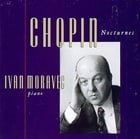 Posted : 17 years, 7 months ago on 3 November 2007 08:35
(A review of Chopin: Nocturnes)
Posted : 17 years, 7 months ago on 3 November 2007 08:35
(A review of Chopin: Nocturnes)Absolutely beautiful piano pieces composed by Chopin and played with supreme skill and emotional intensity by pianist Ivan Moravec.
This particular release includes all 19 of Chopin's nocturnes, here recording in 1965 by Moravec. The sound quality is rich, free of hiss or distortion. Each note played is clearly and cleanly captured.
The included booklet contains a track listing and a 6-page 1965 essay on the composer by James Lyons, then editor of The American Record Guide.
No amount of praise I could give this music would come close to matching that already bestowed upon Chopin, but I do have to say that this is some of the most moving stuff I've ever had the pleasure to hear.
And I'm not a classical geek by any stretch of the imagination. In fact, I primarily listen to rock, electronic, blues, jazz, some country, and some hip-hop. Until a few weeks ago my only exposure to classical music was the ubiquitous stuff used in pop culture like Beethoven's Fifth. But this music by Chopin has inspired me to give a closer look to the genre. I hope you will, too, and to that end I can't recommend this two-CD set enough.
This particular release includes all 19 of Chopin's nocturnes, here recording in 1965 by Moravec. The sound quality is rich, free of hiss or distortion. Each note played is clearly and cleanly captured.
The included booklet contains a track listing and a 6-page 1965 essay on the composer by James Lyons, then editor of The American Record Guide.
No amount of praise I could give this music would come close to matching that already bestowed upon Chopin, but I do have to say that this is some of the most moving stuff I've ever had the pleasure to hear.
And I'm not a classical geek by any stretch of the imagination. In fact, I primarily listen to rock, electronic, blues, jazz, some country, and some hip-hop. Until a few weeks ago my only exposure to classical music was the ubiquitous stuff used in pop culture like Beethoven's Fifth. But this music by Chopin has inspired me to give a closer look to the genre. I hope you will, too, and to that end I can't recommend this two-CD set enough.
 0 comments, Reply to this entry
0 comments, Reply to this entry
worth a standing ovation
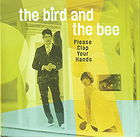 Posted : 17 years, 8 months ago on 2 October 2007 08:44
(A review of Please Clap Your Hands)
Posted : 17 years, 8 months ago on 2 October 2007 08:44
(A review of Please Clap Your Hands)The Bird and the Bee's new EP, "Please Clap Your Hands," their first follow-up to their self-titled debut album, builds on and expands the strenths of their previous effort (intelligent pop phrasing, multitracked vocal harmonies, and self-conscious lyricism) while eliminating the weaknesses (stylistically uneven refrains, outdated synth patches).
The album consists of only 5 songs, but it's 20 minutes of pure charming bliss.
Inara George (vocalist, aka, the Bird) turns in one fantasticly seductive performance after another on every track, while Greg Kurstin (keyboards, drum machines, aka, the Bee) provides the pitch perfect compliment to her breathy voice.
If you've got $5 to spare, and have any sort of taste for electronic pop and/or female vocalists, I definitely recommend that you check this album out.
The album consists of only 5 songs, but it's 20 minutes of pure charming bliss.
Inara George (vocalist, aka, the Bird) turns in one fantasticly seductive performance after another on every track, while Greg Kurstin (keyboards, drum machines, aka, the Bee) provides the pitch perfect compliment to her breathy voice.
If you've got $5 to spare, and have any sort of taste for electronic pop and/or female vocalists, I definitely recommend that you check this album out.
 0 comments, Reply to this entry
0 comments, Reply to this entry
a bore but for Brooks
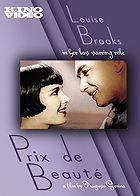 Posted : 17 years, 10 months ago on 14 August 2007 07:48
(A review of Prix De Beaute (1930))
Posted : 17 years, 10 months ago on 14 August 2007 07:48
(A review of Prix De Beaute (1930))Louise Brooks is now rightfully considered one of THE great early film actresses for her work on two German silent films directed by D.W. Pabst, "Pandora's Box" and "Diary of a Lost Girl," but in her own time she was a Hollywood reject due to her reputation for being "difficult" to work with while the critics panned her acting as being too inexpressive. After returning to America she spent a few years slumming it in B-westerns before quiting film and moving to New York. There she labored away in obscurity as a sales clerk, among other menial jobs, for decades until her films were critically "rediscovered." Later in life, she found a niche as gifted essayist and a collection of her works titled "Lulu in Hollywood" is still in print.
Prix de Beaute is a film that D.W. Pabst had adapted for Brooks, but due to his scheduling conflicts he was unable to direct and produce it himself. Instead, Augusto Genina took over the project, which is a shame, because the story would've been infinitely more compelling had it been filmed with Pabst's expressionist aesthetic and obvious appreciation for and understanding of how to capture Brooks' natural animal magnetism.
Genina's photography is, by contrast, pretty conventional. Worse, his direction of Brooks leaves her looking sapped of energy and more confused than conflicted in several key scenes. Perhaps most damning is the fact that even though Brooks spends much of her time in the film walking about in a bathing suit she never strikes the viewer as being a particularly erotic figure, especially when compared to her performances in the two aforementioned Pabst films.
All that said, with so few Louise Brooks films around today this will still be a must-see for her dedicated fans, but for those not already caught up in her spell "Pandora's Box" is a much, much better place to start falling in love with Lulu.
Prix de Beaute is a film that D.W. Pabst had adapted for Brooks, but due to his scheduling conflicts he was unable to direct and produce it himself. Instead, Augusto Genina took over the project, which is a shame, because the story would've been infinitely more compelling had it been filmed with Pabst's expressionist aesthetic and obvious appreciation for and understanding of how to capture Brooks' natural animal magnetism.
Genina's photography is, by contrast, pretty conventional. Worse, his direction of Brooks leaves her looking sapped of energy and more confused than conflicted in several key scenes. Perhaps most damning is the fact that even though Brooks spends much of her time in the film walking about in a bathing suit she never strikes the viewer as being a particularly erotic figure, especially when compared to her performances in the two aforementioned Pabst films.
All that said, with so few Louise Brooks films around today this will still be a must-see for her dedicated fans, but for those not already caught up in her spell "Pandora's Box" is a much, much better place to start falling in love with Lulu.
 0 comments, Reply to this entry
0 comments, Reply to this entry
Ho-hum
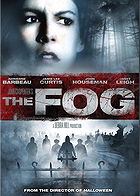 Posted : 17 years, 10 months ago on 14 August 2007 05:00
(A review of The Fog (Special Edition))
Posted : 17 years, 10 months ago on 14 August 2007 05:00
(A review of The Fog (Special Edition))This would make a great "horror" movie for kids. There is very little gore, but plenty of cheap scares as the eponymous Fog provides a suitably creepy cover for the pirate ghosts to stalk and strike out at our protagonists.
Unfortunately, teens and grown-ups will likely be left wanting because the plot is waaay too simple (it's all laid out in two expository scenes near the beginning). Worse, the characters are absolutely devoid of any sort of compelling backstories, arcs, traits, hidden or overt agendas, or anything else that might lead the viewer to care one way or another if they live or die.
The DVD transfer is pretty bad, too. Most of the time the picture is grainy and colors washed out. The surround sound mix wasn't notable either; nothing would be lost by watching it on a standard two-speaker setup.
Buy this if you're a John Carpenter completist, otherwise check out Carpenter's remake of The Thing instead.
Unfortunately, teens and grown-ups will likely be left wanting because the plot is waaay too simple (it's all laid out in two expository scenes near the beginning). Worse, the characters are absolutely devoid of any sort of compelling backstories, arcs, traits, hidden or overt agendas, or anything else that might lead the viewer to care one way or another if they live or die.
The DVD transfer is pretty bad, too. Most of the time the picture is grainy and colors washed out. The surround sound mix wasn't notable either; nothing would be lost by watching it on a standard two-speaker setup.
Buy this if you're a John Carpenter completist, otherwise check out Carpenter's remake of The Thing instead.
 0 comments, Reply to this entry
0 comments, Reply to this entry
Art, a blank canvas, or both?
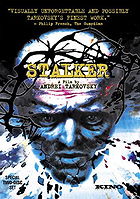 Posted : 17 years, 12 months ago on 27 June 2007 04:34
(A review of Stalker)
Posted : 17 years, 12 months ago on 27 June 2007 04:34
(A review of Stalker)Last night I watched Stalker, Tarkovsky's other sci-fi film (the first being Solaris) and the one that probably killed him (unbeknownst to the cast and crew, the area it was filmed was filled with toxic waste and, as a result, many of them, including Tarkovsky, ended up dying of cancer soon thereafter). Here's yet another DVD I'm sad I let sit on my shelf unwatched for so long.
Stalker is infamous for being "challenging" due it's long takes, slow pans, sparse and enigmatic dialog, and impenetrable symbolism (which Tarkovsky himself famously denied was intentional). It's been described by many critics as a meditation on faith and the lack thereof in our world of cynical secular modernity.
Certainly there is something to that considering the plot, a dangerous pilgrimage by three "wretched" souls seeking redemption at a place of miracles, but I'm not sure how much of this meditation really exists within the film itself. Because this arthouse style of filmmaking thrives on a less-is-more method of storytelling, we tend to imagine for ourselves far more going on than we are actually shown by the filmmakers. Is that really art, or is it just a placeholder for inserting our own assumptions, thoughts, and experiences?
But then it's more than a placeholder, it's a catalyst for thought - not just about figuring out the film, but also about figuring out oneself. In that way, I suppose it is a work of art, after all, but only insofar as one is willing to embrace it as such. Like another reviewer said, how much you take from Stalker depends mostly on how much you bring to it. Whether you find it boring and tedious or fascinating and captivating says as much about you as it does about the film.
Should art convey meaning in and of itself, or should it involve the audience in determining its meaning? I used to be a strong proponent of the former view. For the longest time modern art struck me as lazy precisely because it often seemed to demand more from the audience than than from the artist. But Stalker, in particular, is anything but lazy filmmaking. On the contrary, the scenes are clearly carefully and masterfully composed and edited. One might argue it's still lazy for an artist either leave unclear or purposely obscure the meaning of his or her work, but if the intention is to make one *think* rather than just *consume* (and Tarkovsky makes his disdain for the latter pretty clear in Writer's speech in Stalker) then isn't such obfuscation necessary? After all, a conclusion given to one is not nearly as powerful as a conclusion reached for oneself. In that case, the artist, like the stalker in the film, is there to guide travelers seeking revelation down the proper path, but it's the travelers themselves who must cross over the threshold of intense self-examination into revelation.
Philosophical wankery aside, Stalker is definitely worth seeing if you can give it your full attention for its three-hour run time. Even if the story leaves you cold, the cinematography and lighting are striking and beautiful, and the acting fantastic, especially from the man playing the eponymous Stalker.
Stalker is infamous for being "challenging" due it's long takes, slow pans, sparse and enigmatic dialog, and impenetrable symbolism (which Tarkovsky himself famously denied was intentional). It's been described by many critics as a meditation on faith and the lack thereof in our world of cynical secular modernity.
Certainly there is something to that considering the plot, a dangerous pilgrimage by three "wretched" souls seeking redemption at a place of miracles, but I'm not sure how much of this meditation really exists within the film itself. Because this arthouse style of filmmaking thrives on a less-is-more method of storytelling, we tend to imagine for ourselves far more going on than we are actually shown by the filmmakers. Is that really art, or is it just a placeholder for inserting our own assumptions, thoughts, and experiences?
But then it's more than a placeholder, it's a catalyst for thought - not just about figuring out the film, but also about figuring out oneself. In that way, I suppose it is a work of art, after all, but only insofar as one is willing to embrace it as such. Like another reviewer said, how much you take from Stalker depends mostly on how much you bring to it. Whether you find it boring and tedious or fascinating and captivating says as much about you as it does about the film.
Should art convey meaning in and of itself, or should it involve the audience in determining its meaning? I used to be a strong proponent of the former view. For the longest time modern art struck me as lazy precisely because it often seemed to demand more from the audience than than from the artist. But Stalker, in particular, is anything but lazy filmmaking. On the contrary, the scenes are clearly carefully and masterfully composed and edited. One might argue it's still lazy for an artist either leave unclear or purposely obscure the meaning of his or her work, but if the intention is to make one *think* rather than just *consume* (and Tarkovsky makes his disdain for the latter pretty clear in Writer's speech in Stalker) then isn't such obfuscation necessary? After all, a conclusion given to one is not nearly as powerful as a conclusion reached for oneself. In that case, the artist, like the stalker in the film, is there to guide travelers seeking revelation down the proper path, but it's the travelers themselves who must cross over the threshold of intense self-examination into revelation.
Philosophical wankery aside, Stalker is definitely worth seeing if you can give it your full attention for its three-hour run time. Even if the story leaves you cold, the cinematography and lighting are striking and beautiful, and the acting fantastic, especially from the man playing the eponymous Stalker.
 0 comments, Reply to this entry
0 comments, Reply to this entry
smart and fresh electronic pop
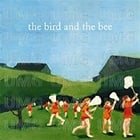 Posted : 18 years, 1 month ago on 27 April 2007 07:11
(A review of The Bird & The Bee)
Posted : 18 years, 1 month ago on 27 April 2007 07:11
(A review of The Bird & The Bee)Remember the late 90's / early 00's when everyone and their mom jumped on the techno diva bandwagon and we were treated to a disco redux? Driving four to the floor house beats, repetitious synthesized melodies, and even the old vocoder was dusted off and pulled from the 70's closet. Ugh.
Thankfully, though the The Bird and the Bee are an electronic pop act, they have nothing in common with the likes of Cher, Madonna, and the like. Instead, TBATB has smart lyrics, insistent (but not incessant) rhythms and catchy melodies, and a beautiful voice that's not filtered/flanged/reverbed/pitch-shifted into oblivion. Greg Kurstin's production is top-notch, slick without feeling plastic and artificial.
You can stream a few songs from the album here:
[Link removed - login to see]
Thankfully, though the The Bird and the Bee are an electronic pop act, they have nothing in common with the likes of Cher, Madonna, and the like. Instead, TBATB has smart lyrics, insistent (but not incessant) rhythms and catchy melodies, and a beautiful voice that's not filtered/flanged/reverbed/pitch-shifted into oblivion. Greg Kurstin's production is top-notch, slick without feeling plastic and artificial.
You can stream a few songs from the album here:
[Link removed - login to see]
 0 comments, Reply to this entry
0 comments, Reply to this entry
A great looking ensemble noir film.
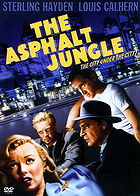 Posted : 18 years, 1 month ago on 27 April 2007 04:00
(A review of The Asphalt Jungle)
Posted : 18 years, 1 month ago on 27 April 2007 04:00
(A review of The Asphalt Jungle)The good stuff:
Plenty of great characters here! You have the old, accomplished fat-cat sleezey defense lawyer, the unflappably cordial German criminal mastermind, the tough-guy with just enough heart to make you root for him, the safecracking family man, the disfugured wheel man, and the weasily bookie, all of whom come together to pull off the heist of the century. But a double cross and several strokes of bad luck threaten to destroy the lives of every one of them.
Even the minor characters are fascinating. The crooked cop, the tough-on-crime police commissioner, the violent private eye, the down-on-her-luck dancer girlfriend, the bedridden wife. Finally, be prepared for a very young looking Marilyn Monroe (she was 23 playing 17 or 18) who will make you feel like a dirty old man for lusting after her-- and I'm only 27!
The camera work is, of course, top notch. It's John Huston, here, folks! And you can't beat the quintessential noir atmosphere of dark, dilapidated, urban landscapes, every filthy corner teeming with corruption.
The bad stuff:
Sterling Hayden and Jean Hagen really chew up the scenery. Their scenes together are cringe inducing.
The sound is pretty unremarkable.
Bottom-line:
If you like noir, this is a must-see.
Plenty of great characters here! You have the old, accomplished fat-cat sleezey defense lawyer, the unflappably cordial German criminal mastermind, the tough-guy with just enough heart to make you root for him, the safecracking family man, the disfugured wheel man, and the weasily bookie, all of whom come together to pull off the heist of the century. But a double cross and several strokes of bad luck threaten to destroy the lives of every one of them.
Even the minor characters are fascinating. The crooked cop, the tough-on-crime police commissioner, the violent private eye, the down-on-her-luck dancer girlfriend, the bedridden wife. Finally, be prepared for a very young looking Marilyn Monroe (she was 23 playing 17 or 18) who will make you feel like a dirty old man for lusting after her-- and I'm only 27!
The camera work is, of course, top notch. It's John Huston, here, folks! And you can't beat the quintessential noir atmosphere of dark, dilapidated, urban landscapes, every filthy corner teeming with corruption.
The bad stuff:
Sterling Hayden and Jean Hagen really chew up the scenery. Their scenes together are cringe inducing.
The sound is pretty unremarkable.
Bottom-line:
If you like noir, this is a must-see.
 0 comments, Reply to this entry
0 comments, Reply to this entry
 Login
Login
 Home
Home 15 Lists
15 Lists 49 Reviews
49 Reviews Collections
Collections